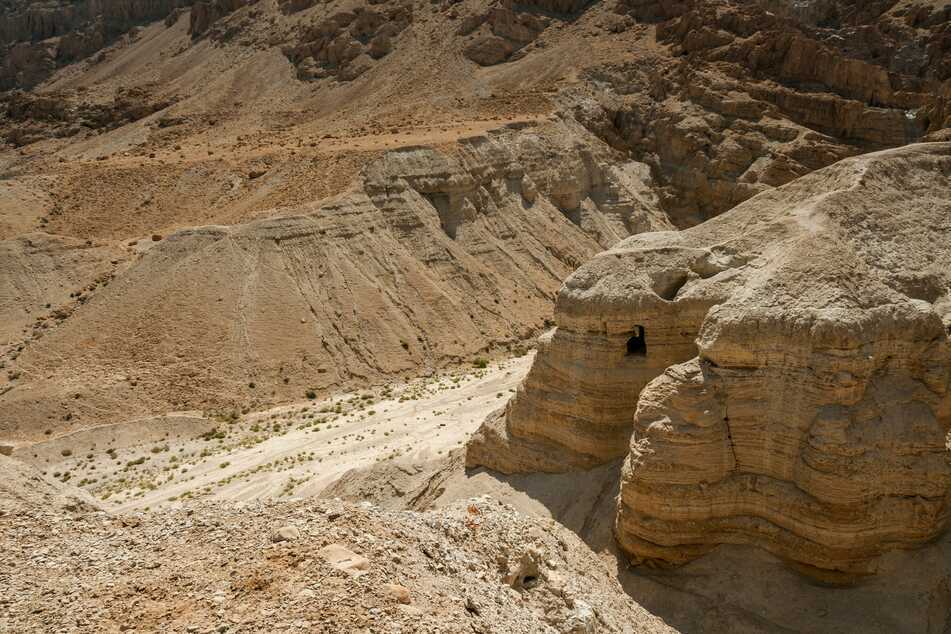Bible fragments discovered near Dead Sea first such find in decades

Fragments of an ancient biblical scroll have been discovered in a cave near the Dead Sea in Israel, the first such find in decades, the Israel Antiquities Authority announced on Tuesday.
The discovery comes 60 years after the Qumran scrolls were found in caves at the northern end of the Dead Sea. They are considered the oldest known Bible fragments.
Further excavations in the caves began in 2017, to protect them from the looting that can happen in the Judean desert, the antiquities authority said.
The new find includes: dozens of fragments of a biblical scroll; a 6,000-year old mummified skeleton of a child; coins; arrowheads; clothes; sandals; combs; as well as a basket, which is said to date back 10,500 years, likely the oldest ever found, according to a statement.
“These finds are not just important to our own cultural heritage, but to that of the entire world,” said Avi Cohen, head of the Ministry of Jerusalem and Heritage.
The fragments were written in Greek and date back to the Bar Kokhba period, the researchers said. A Jewish rebellion under its leader, Bar Kokhba, broke out in the year 132 AD and was quashed around three years later.
The scrolls contain passages from the Book of the Twelve, or minor prophets, including from the books of Nahum and Zechariah.
The fragments were found in the Cave of Horror in the Nahal Hever valley, a cave which is located below a clifftop and can only be reached by lowering down on a rope. The authority warned against any attempts to enter the cave due to the risk of accident.
One verse from Zechariah is included in the scroll: “These are the things you are to do: Speak the truth to one another, render true and perfect justice in your gates. And do not contrive evil against one another, and do not love perjury, because all those are things that I hate-declares the Lord.”
The child’s skeleton that was found together with the scrolls was likely female and had been covered with a cloth. It was remarkebly well conserved due to the conditions in the cave, the researchers said.
The climate conditions in the caves are favourable to the conservation of scroll fragments. However, since the discovery of the Qumran scrolls in 1947 by a sheep herder, looters have visited many of the caves in the Judean desert and destroyed historical artefacts, the authority said







